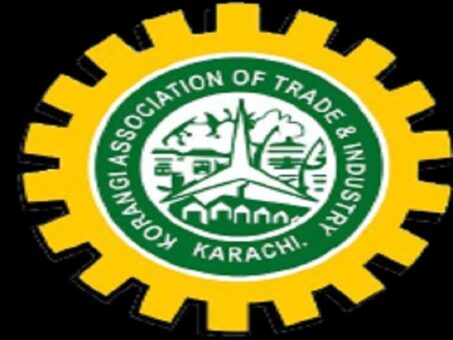Karachi, June 17, 2023: Ashfaq Tola, the Minister of State for Revenue, addressed concerns and dispelled rumors regarding Pakistan’s potential default on its financial obligations.
Speaking at the Korangi Association of Trade and Industry (KATI), Tola assured the audience that Pakistan would not default.
READ MORE: FPCCI Expresses Disappointment over Maintaining Status Quo in Policy Rate
The event was attended by prominent figures such as KATI President Faraz-ur-Rehman, Deputy Patron-in-Chief Zubair Chhaya, Senior Vice President Nighat Awan, and Vice President Muslim Mohammadi.
Tola emphasized that out of the allocated budget of Rs9.2 trillion rupees, a significant portion of Rs9 trillion could be collected without difficulty. He reassured the audience that the government had implemented measures to provide historic relief to small businesses through the budget. However, he acknowledged that the auto and electronics sectors were currently facing significant challenges.
READ MORE: Budget 2023-24 lacks measures to stabilize economy: OICCI
Regarding tax amnesty schemes, Tola clarified that the government had not introduced any such scheme in the budget. Any ambiguity related to such a scheme would be resolved before the International Monetary Fund (IMF).
The Minister of State expressed his concern about the dominance of the cash trade system in Pakistan, highlighting that only 3% of the population was currently contributing 90% of the tax revenue. He emphasized that the budget had been meticulously designed, taking into consideration the needs and circumstances of various sectors. Tola also criticized the previous government for the negative impact caused by the suspension of the China-Pakistan Economic Corridor (CPEC) program.
READ MORE: Pakistan Budget 2023-24: Salary and Pension Increased to Combat Inflation
KATI President Faraz-ur-Rehman stressed the necessity of expanding the tax net to stimulate economic growth. He called for the government’s intervention in controlling the value of the national currency and highlighted ongoing challenges faced by the business community, including delayed customs clearance and persistent shortages of raw materials.
Zubair Chhaya, Deputy Patron-in-Chief of KATI, expressed concerns about the increase in withholding tax and the complex tax regime, which instilled fear among taxpayers. He called for clarity regarding the distinction between filers and non-filers, stating that tax savings for filers often ended up being spent on responding to tax-related notices.
READ MORE: Pakistan Implements 10% Withholding Tax on Foreign Payments via Cards
Tariq Yusuf, President of the Karachi Chamber, criticized the government’s traditional budget, claiming that it perpetuated the same old formulas. He argued that those already paying taxes were burdened further, while non-filers enjoyed exemptions. Yusuf also lamented the complexities of the tax system, which deterred potential taxpayers.
Asif Haroon, a partner at AF Ferguson, provided insights into various tax measures implemented by the government. He discussed the introduction of the super tax in 2015 and its subsequent re-introduction last year through the Finance Act of 2022. Haroon explained that the tax rate had increased to 6-10% for incomes exceeding 350 million rupees and would be imposed on incomes above 500 million rupees this year. He also outlined other tax changes, including increased shareholder taxes on bonus shares and levies for non-filers withdrawing significant amounts from banks.
The ceremony concluded with addresses from Standing Committee Chairman Tariq Malik, UBG President Zubair Tufail, and Sindh Region Chairman Khalid Tawab.
It is important to note that Ashfaq Tola’s statements provide reassurance regarding Pakistan’s financial stability and the government’s efforts to address the concerns of various sectors.
